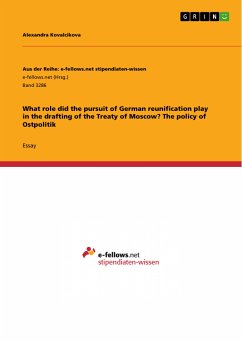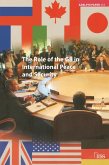Seminar paper from the year 2016 in the subject History of Europe - Newer History, European Unification, grade: 1, University of Vienna, language: English, abstract: The Balkan Wars (1912-1913) led to a crucial change for the people living in Vardar Macedonia. Having been ruled by the Ottoman Empire for a long period, they now had to cope with Serbia as occupant. Serbian military, police and authorities in general followed a nationalist policy of 'Serbianisation', which led to suppression of religious rights as well as harassment and atrocities against the non-Serbian population, especially Muslims. Ideas of ethnicity and religion played a significant role, when Serbian authorities tried to nationalise the people living in the region of "Vardar Macedonia" during the years 1912-1914. Suddenly, these people should not only be part of the state, but also the nation of Serbia. Background of this policy was the alleged common language, culture and religion of the people living in Serbia and in the new territory. In this paper, I will focus on the question of religion, which has to be seen in a close context to the ideas of nationalism and ethnicity in this region: Belonging to the Serbian nation meant belonging to the Serbian Orthodox Church. Since I will use diplomatic primary sources, my research question will be: "How did the idea of a common religion determine the policy of Serbianisation of Vardar-Macedonia in the eyes of foreign diplomats?"
Dieser Download kann aus rechtlichen Gründen nur mit Rechnungsadresse in A, B, BG, CY, CZ, D, DK, EW, E, FIN, F, GR, HR, H, IRL, I, LT, L, LR, M, NL, PL, P, R, S, SLO, SK ausgeliefert werden.









